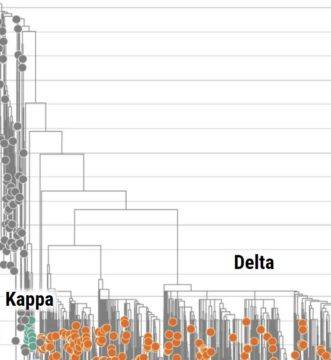Kai Kupferschmidt in Science:
 Edward Holmes does not like making predictions, but last year he hazarded a few. Again and again, people had asked Holmes, an expert on viral evolution at the University of Sydney, how he expected SARS-CoV-2 to change. In May 2020, 5 months into the pandemic, he started to include a slide with his best guesses in his talks. The virus would probably evolve to avoid at least some human immunity, he suggested. But it would likely make people less sick over time, he said, and there would be little change in its infectivity. In short, it sounded like evolution would not play a major role in the pandemic’s near future.
Edward Holmes does not like making predictions, but last year he hazarded a few. Again and again, people had asked Holmes, an expert on viral evolution at the University of Sydney, how he expected SARS-CoV-2 to change. In May 2020, 5 months into the pandemic, he started to include a slide with his best guesses in his talks. The virus would probably evolve to avoid at least some human immunity, he suggested. But it would likely make people less sick over time, he said, and there would be little change in its infectivity. In short, it sounded like evolution would not play a major role in the pandemic’s near future.
“A year on I’ve been proven pretty much wrong on all of it,” Holmes says.
Well, not all: SARS-CoV-2 did evolve to better avoid human antibodies. But it has also become a bit more virulent and a lot more infectious, causing more people to fall ill. That has had an enormous influence on the course of the pandemic.
More here.
